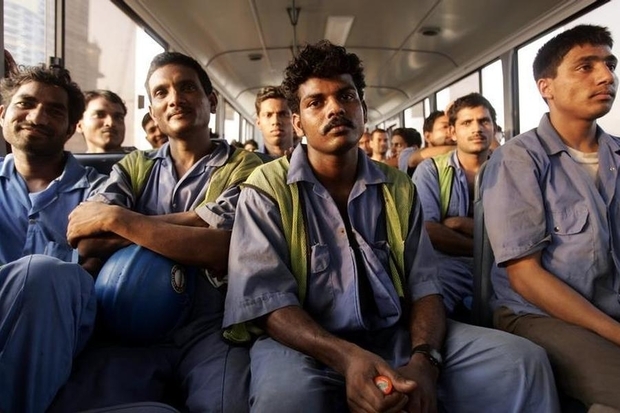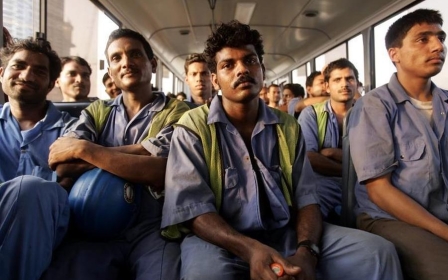India backs down over special passports for migrant workers

The Indian government has backed down over plans to issue special passports to unskilled workers, many of whom require government clearance to take jobs in the Gulf.
The move would have affected Indians who required "emigration clearance" (ECR) to work overseas - mainly those with no formal qualifications - to a group of 18 countries, the majority in the Gulf.
India introduced the additional screening in 1983 for those most at risk of exploitation overseas and identified those needing "clearance" on the last page of their passports.
Plans to introduce orange passports reflect discriminatory practices of the government towards its own people
- Duraisamay Raja, Communist Party MP
Those with a formal level of education do not require clearance as they are deemed less at risk of being exploited.
New Delhi justified the plan as a move to protect vulnerable workers but it was struck down after widespread condemnation by Indian activists and opposition politicians who feared it would deepen discrimination.
A spokesperson for India's Ministry of External Affairs confirmed the government's U-turn and said: "After comprehensive discussions with stakeholders, the foreign ministry has decided to continue with the practice of printing the last page of the passport and not to issue separate passports with the orange-coloured jacket to ECR passport holders."
Duraisamay Raja, an opposition politician, told the Hindu the move "reflected discriminatory practices of the (Indian) government towards its own people".
"Passports are already divided into two categories of ECR and non-ECR after (prospective workers) go through an emigration check," said Raja.
He added that during a meeting on Sunday, MPs from the southern state of Kerala, where many migrants originate, also condemned the move.
Earlier this month, Rahul Gandhi, the leader of the opposition Congress party, said workers would be treated like "second-class citizens" under the plan.
Despite a booming economy, India continues to be one of the world's most unequal societies and exports millions of workers to the Gulf.
The government did not release any further details about the move when the announcement was made earlier this month.
India is the largest exporter of migrant workers globally, with an estimated six million working in the Gulf states of Bahrain, Qatar, Saudi Arabia, UAE and Oman.
The Indian government and non-governmental groups have received a steady stream of complaints, ranging from non-payment of wages to torture and abuse.
Last year, the government created a resource centre, which included a 24-hour helpline.
New MEE newsletter: Jerusalem Dispatch
Sign up to get the latest insights and analysis on Israel-Palestine, alongside Turkey Unpacked and other MEE newsletters
Middle East Eye delivers independent and unrivalled coverage and analysis of the Middle East, North Africa and beyond. To learn more about republishing this content and the associated fees, please fill out this form. More about MEE can be found here.




